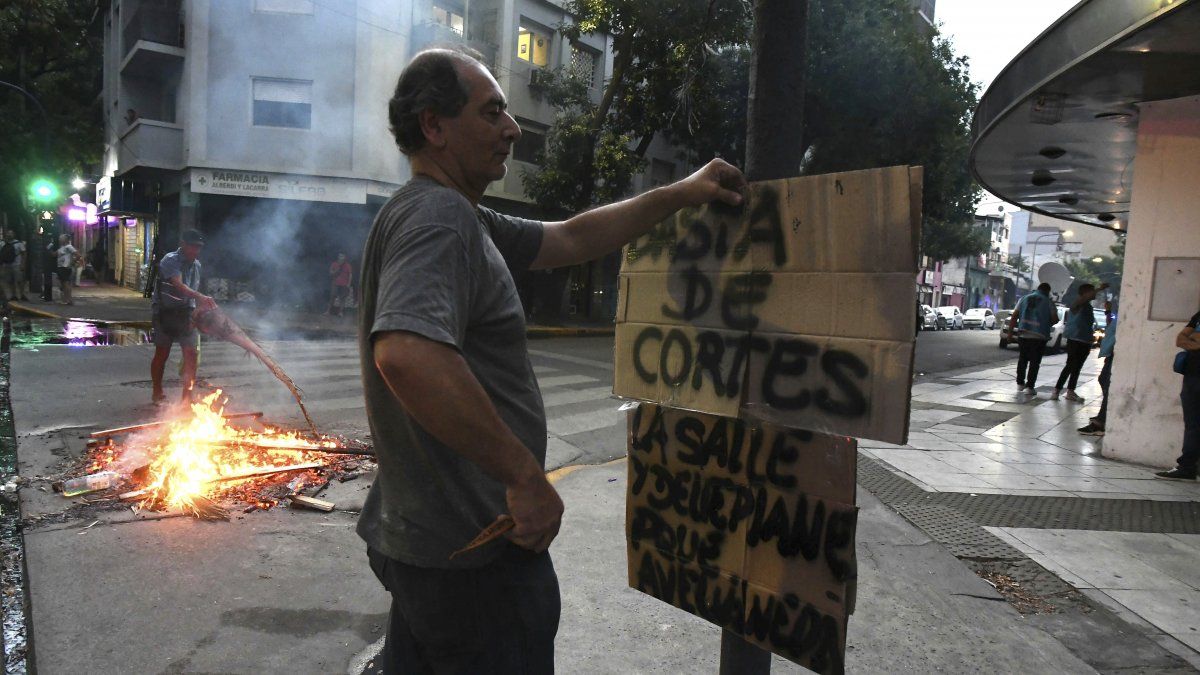The National Electricity Regulation Entity (IN RE), headed by Walter Martello, audit finished made to the company Edesur and now the Government awaits the distributor’s response. One of the critical points of the document, of more than 200 pages, refers to the lack of investment.
The audit carried out by the ENRE affirms: “The performance of the distributor, in the summer of 2022-23, once again exposed the structural backwardness due to the lack of investment and redesign of the facilities.” In addition, he adds that the situation is critical: “This problem is of such magnitude that it is not reversible in the short or medium term, since neither the company nor the market have the technical capacity to comply with it in a short period of time.” .
The document contains a bar graph with the schedule of investment needs and what was actually disbursed. From 2018 to today, the distributor’s investments have never exceeded the necessary investments in the 2019-2023 period.
In fact, one of the conclusions of the audit states: “The graph shows that the concessionaire had the necessary financial resources to comply with the obligations established in the RTI. However, the benefit conditions were not met and there was disinvestment”.
According to the investigation, the consequences of the disinvestment were: more than 60% of the equipment is from before 1980, suffers from overloads, lack of preventive maintenance and temporary obsolescence, which is observed in substations, transformers, switches, cables and protections. In addition, the ENRE assures that the facilities are inadequate to face the service in the required conditions (saturation/load) and there was a decrease in the number of crews to restore the service.
The consequences were visible during the last summer, with thousands of cuts in the Capital and Greater Buenos Aires. For the ENRE, the seriousness of the audit results led to the “breach of the substantial obligations of the Concession Contract.” Now it is the company that has to present a response, and the final decision depends on the Executive Branch, in this case, the Secretariat of Energy, which depends on the Ministry of Economy, headed by Sergio Massa.
In the electricity market, experts explain that the lack of investments and updates is compounded by the age of the network and the increase in demand, due to the fact that the city began from the south and towards the center, so the facilities The oldest are in the area where Edesur operates. This partly explains why, even with rates stepped on for years for both distributors, there are 6 cuts in Edesur against one in Edenor.
In the market, they highlight that the underground high-voltage network is outdated, and even OF (oil-cooled) cables are still used, installed by Agua y Energía, an organization prior to the state-owned Segba. It is estimated that there are almost 900 kilometers of these cables in the Edesur network alone, which are being replaced at a rate of 4 kilometers per year.
It is estimated that the monthly billing is around $15,000,000, income with which it must supply 2.5 million customers, in a concession area of 33,000 km2. According to Edesur data, which is public since it is listed on the stock market, the latest balance sheet shows that the company had investments of $30.95 billion, which meant a 17.6% drop in real terms, due to inflation. The profit was $35,781 million, which meant a positive result after 2 years.
In this context, Edesur is for sale. The distributor belongs to the Italian multinational Enel, interested in staying in Argentina only in the generation business.
Source: Ambito




